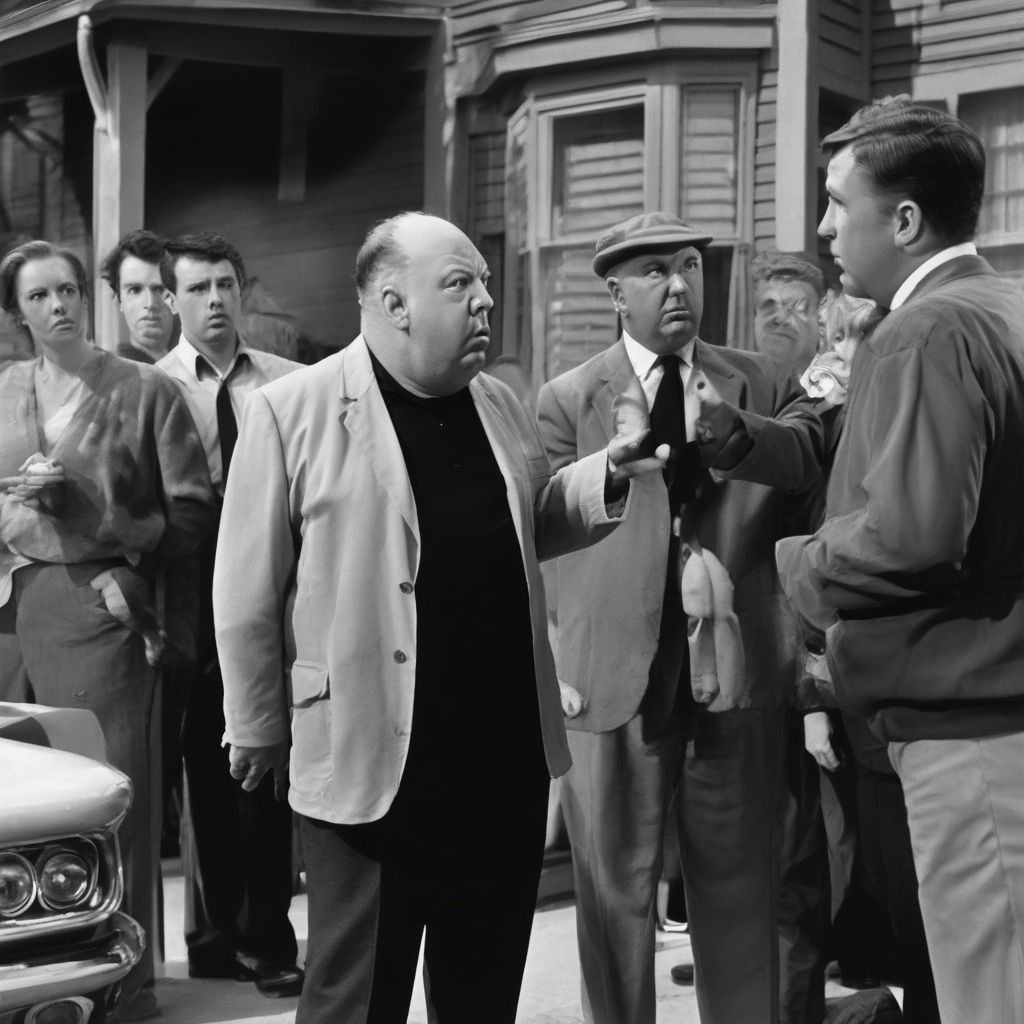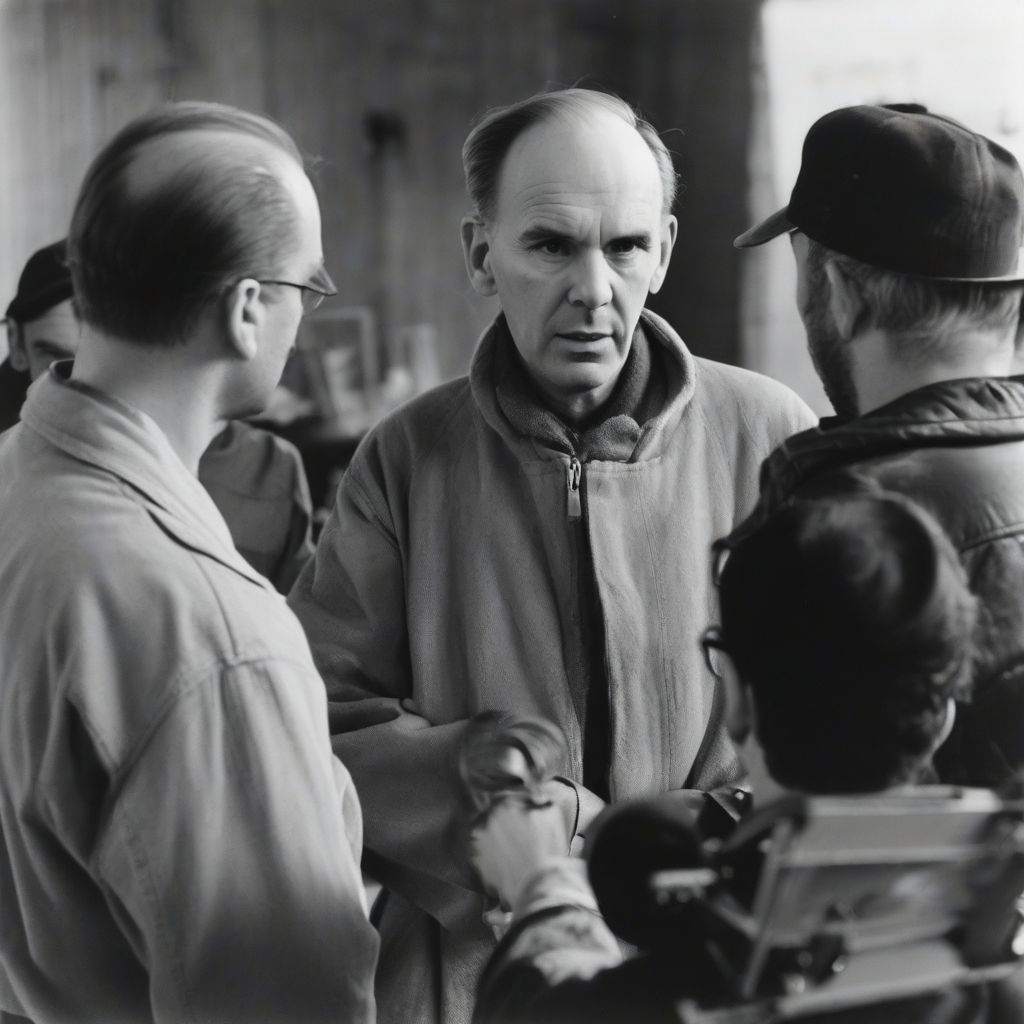“Cinema is a matter of what’s in the frame and what’s out.” – Martin Scorsese. These words, spoken by a cinematic titan, perfectly encapsulate the profound influence legendary directors have on modern filmmaking. Just as Alfred Hitchcock meticulously crafted suspense and Stanley Kubrick redefined science fiction, today’s filmmakers stand on the shoulders of these giants, drawing inspiration from their techniques, visual styles, and storytelling prowess.
This article delves into the enduring legacy of legendary directors and how their innovations continue to shape the landscape of modern cinema.
The Masters of Mise-en-scène: Setting the Stage for Cinematic Brilliance
From the haunting chiaroscuro lighting of German Expressionism to the vibrant colors of Italian Neorealism, the visual language of film owes much to the pioneers who mastered the art of mise-en-scène.
Alfred Hitchcock: The Master of Suspense
Few directors command the same level of reverence as Alfred Hitchcock. His mastery of suspense, achieved through innovative camera angles, editing techniques, and psychological manipulation, continues to inspire filmmakers across genres.
Modern directors like David Fincher, known for thrillers like “Se7en” and “Gone Girl,” owe a debt to Hitchcock’s ability to create a palpable sense of unease and dread. Fincher’s meticulous attention to detail, use of voyeuristic camerawork, and exploration of psychological themes echo Hitchcock’s signature style.
 Alfred Hitchcock Directing Psycho
Alfred Hitchcock Directing Psycho
Akira Kurosawa: The Samurai Painter
Akira Kurosawa, the visionary Japanese director, blended epic storytelling with stunning visuals. His use of dynamic camera movement, innovative editing techniques like the “wipe,” and exploration of samurai culture have left an indelible mark on filmmaking.
The influence of Kurosawa’s samurai epics can be seen in modern films like “Kill Bill” by Quentin Tarantino. Tarantino adopts Kurosawa’s penchant for stylized violence, dramatic framing, and homage to classic Japanese cinema, creating a vibrant pastiche of influences.
Stanley Kubrick: A Symphony of Vision and Sound
Stanley Kubrick’s groundbreaking films, from “2001: A Space Odyssey” to “A Clockwork Orange,” pushed the boundaries of cinematic storytelling. His meticulous attention to detail, innovative use of special effects, and exploration of complex philosophical themes continue to resonate with audiences today.
Christopher Nolan, known for his mind-bending narratives in films like “Inception” and “Interstellar,” cites Kubrick as a major influence. Nolan’s exploration of space and time, coupled with his use of practical effects and ambitious scope, reflect Kubrick’s legacy of pushing the boundaries of what cinema can achieve.
Beyond Visuals: The Enduring Power of Narrative and Theme
The impact of legendary directors extends beyond visual aesthetics. They have shaped the very way stories are told and themes explored in modern cinema.
Ingmar Bergman: Exploring the Depths of the Human Condition
Swedish auteur Ingmar Bergman is renowned for his introspective and psychologically charged films that delve into themes of existentialism, faith, and human relationships. His influence can be seen in the work of contemporary directors like Paul Thomas Anderson (“Magnolia”, “Phantom Thread”), who explore similar themes of isolation, longing, and the complexities of human connection.
 Ingmar Bergman Directing a Film Set
Ingmar Bergman Directing a Film Set
Billy Wilder: The Master of Wit and Social Commentary
Billy Wilder’s films, often characterized by sharp wit, biting social commentary, and memorable characters, continue to resonate with audiences today. His influence is evident in the work of directors like Wes Anderson (“The Grand Budapest Hotel”, “The Royal Tenenbaums”), who shares Wilder’s love for eccentric characters, intricate visual style, and darkly comedic sensibilities.
A Legacy of Innovation: Inspiring Future Generations
The influence of legendary directors transcends mere imitation. Their innovations have paved the way for new genres, storytelling techniques, and cinematic experiences. By studying their works, modern filmmakers gain a deeper understanding of the power of cinema and its ability to transport, challenge, and inspire audiences.
As technology continues to evolve, offering filmmakers new tools for storytelling, the legacy of these cinematic pioneers serves as a reminder that the heart of great filmmaking lies in its ability to connect with audiences on a deeply human level.
The Future of Film: A Tapestry of Influences
The world of cinema is a constantly evolving tapestry, woven from the threads of inspiration, innovation, and the enduring legacy of those who came before. From the haunting suspense of Hitchcock to the epic storytelling of Kurosawa, legendary directors have shaped not only the films we watch but also the way we experience and understand the world around us.
As new generations of filmmakers continue to emerge, drawing inspiration from the past and pushing the boundaries of the art form, one thing remains certain: the influence of legendary directors will continue to shape the future of cinema, ensuring that their stories continue to be told and their visions continue to inspire.
What are some of your favorite examples of how legendary directors have influenced modern filmmakers? Share your thoughts in the comments below!
[amazon bestseller=”filmmaking”]
